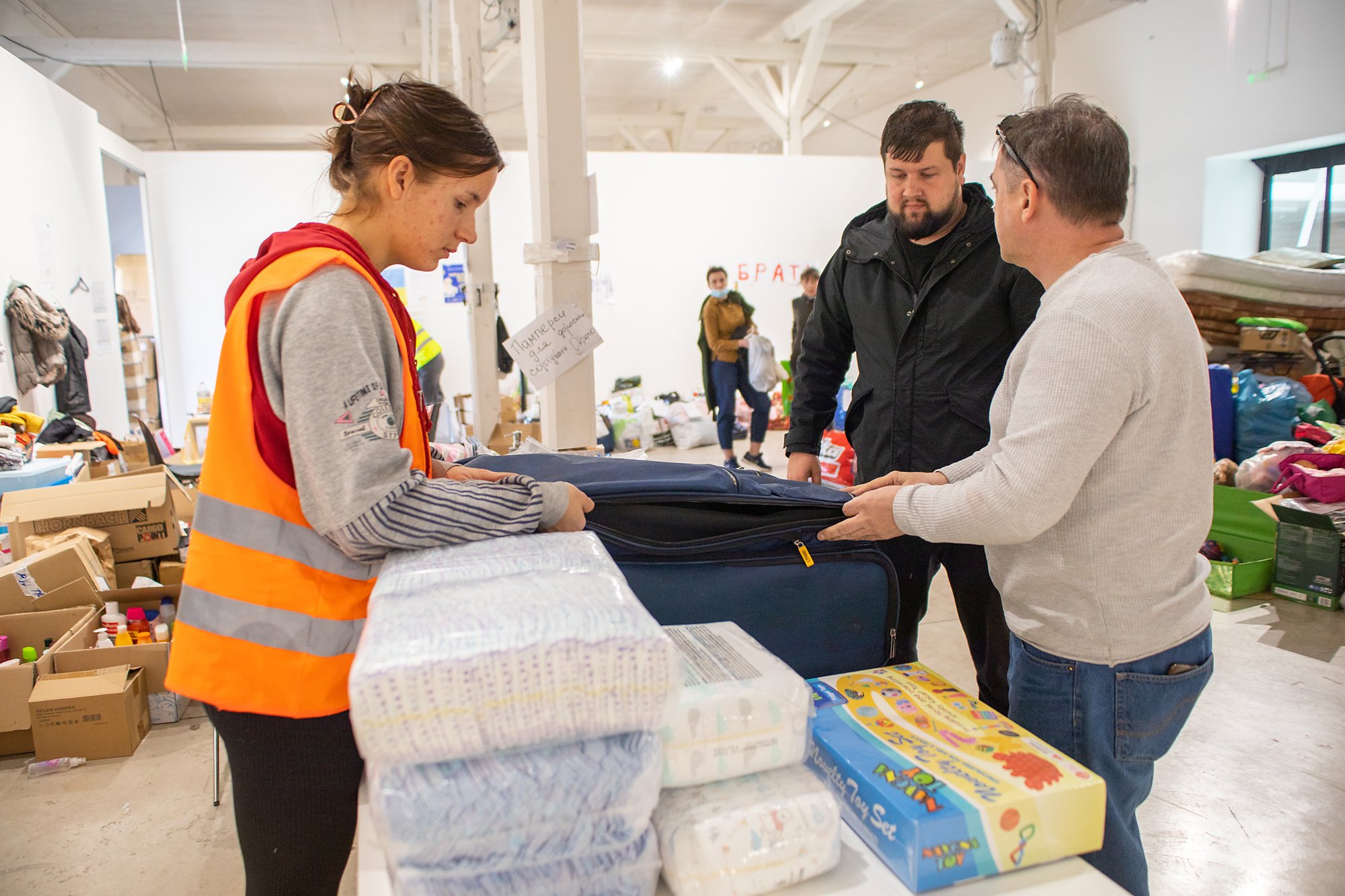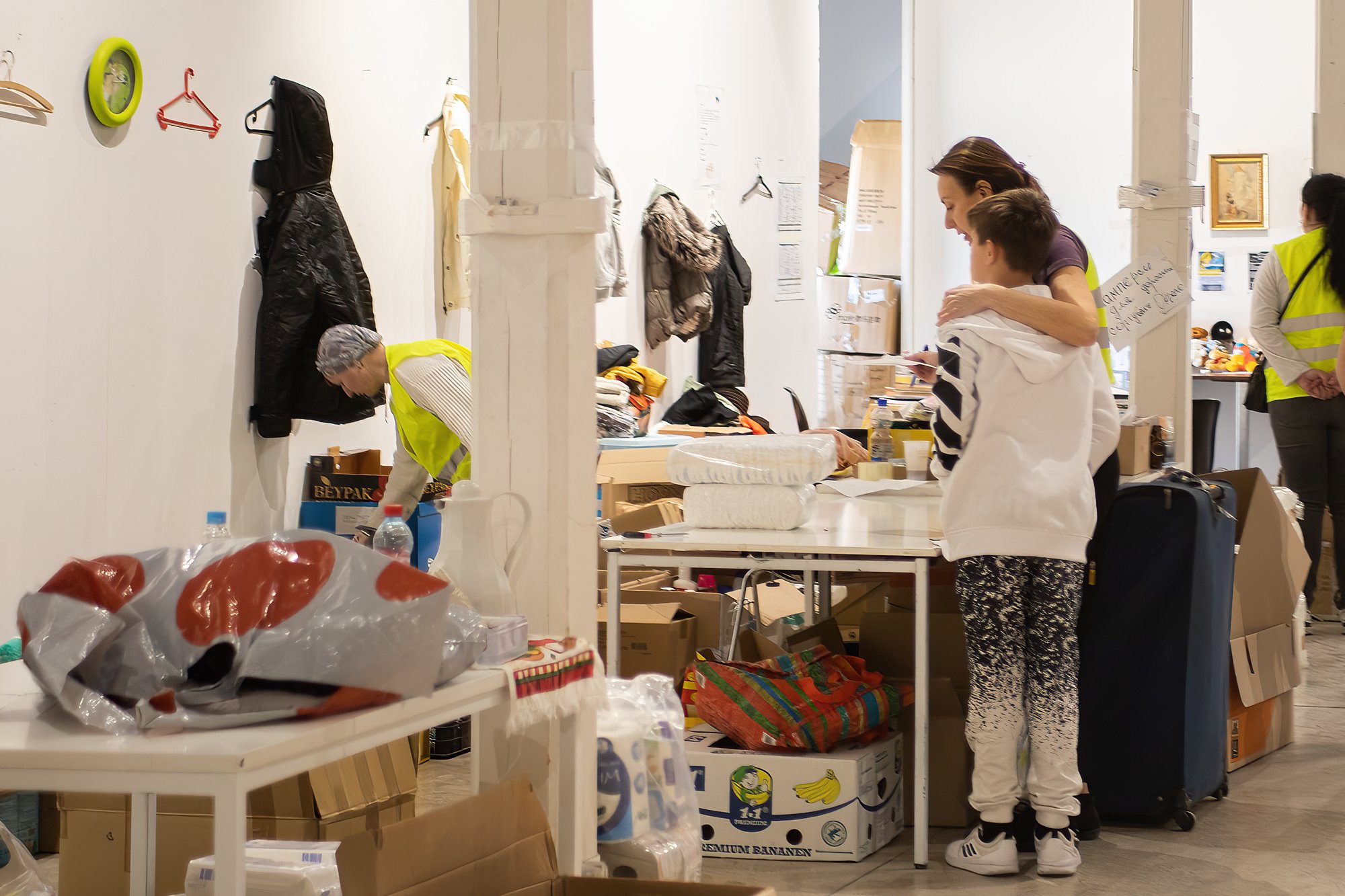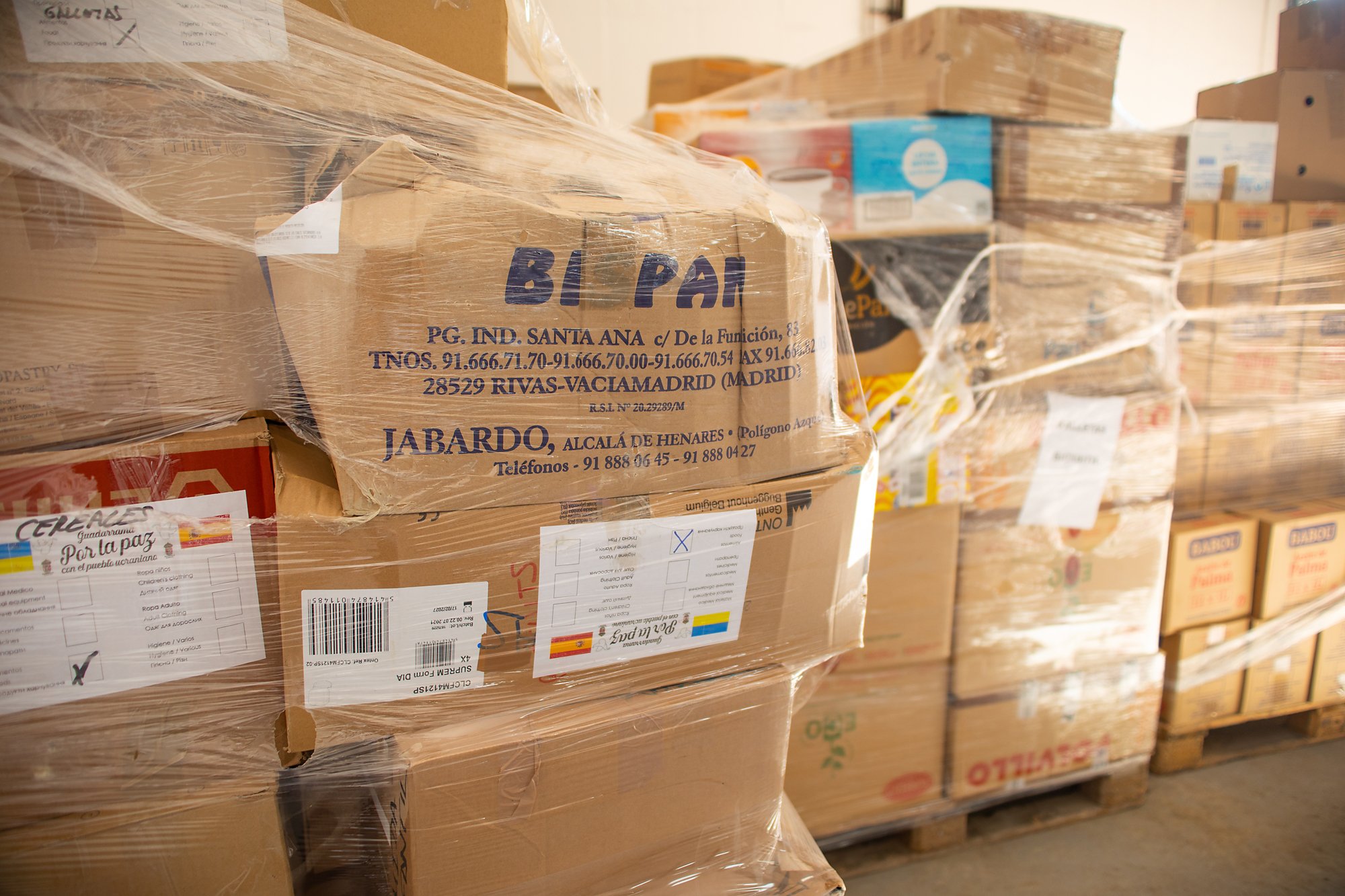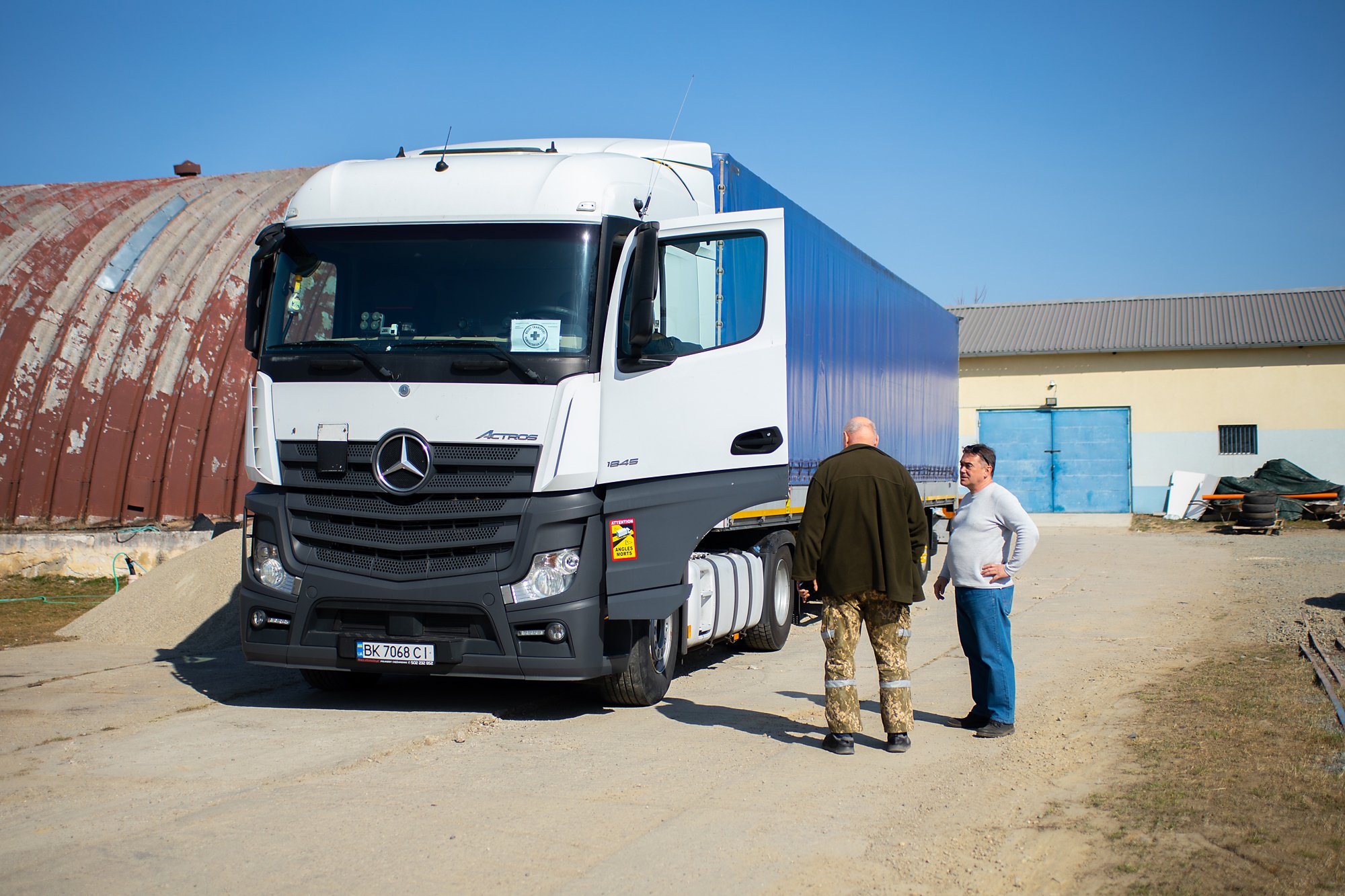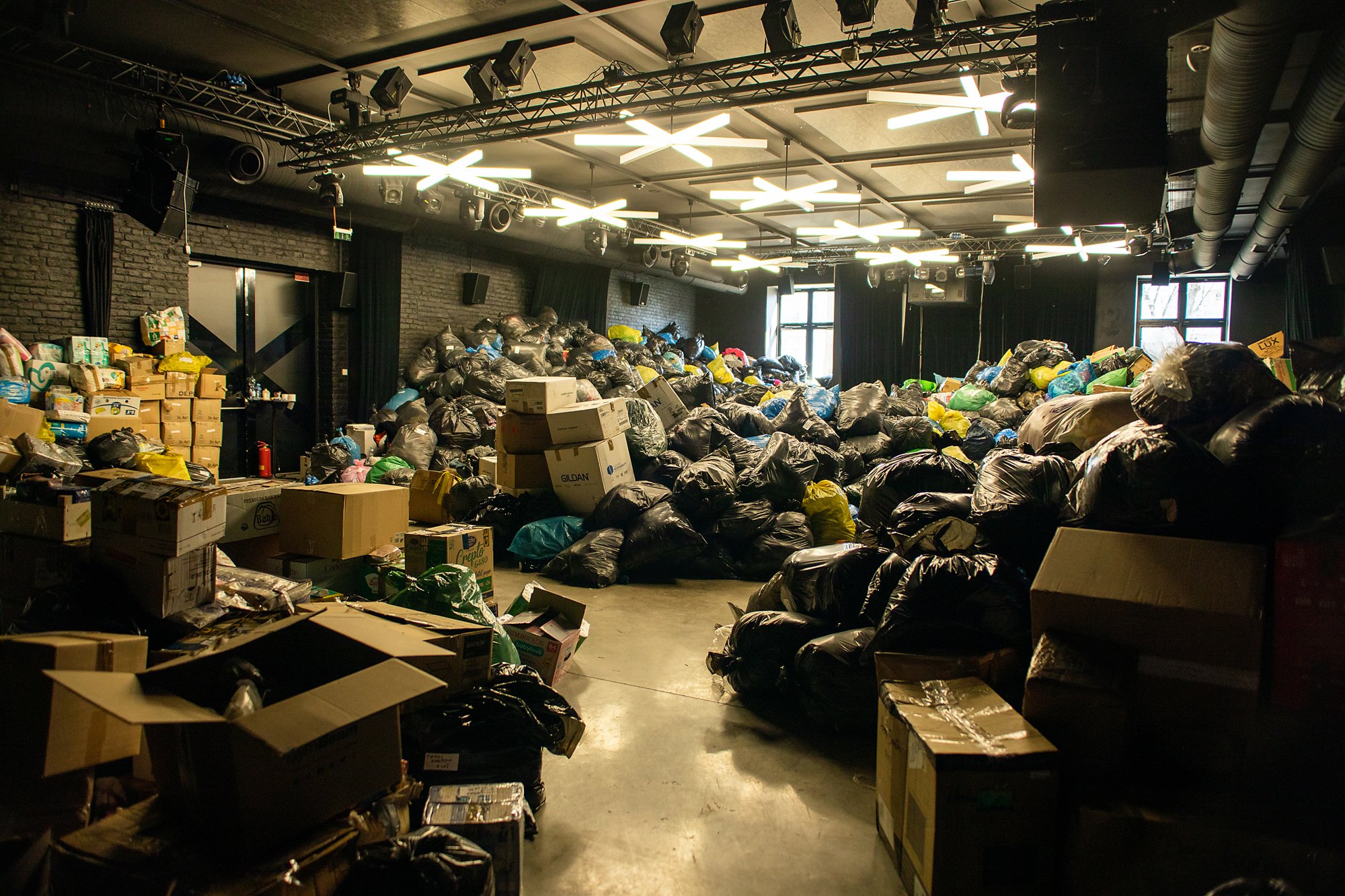Help Ukraine: Best Places to Donate
100% of Donations Go Directly to Ukrainian Families:
Rotary International: Rotary Club Kosice, Slovakia
Rotary is found all over the world and interconnected so that they can have a profound impact globally. Rotary Club Kosice has been essential in finding homes for refugee families fleeing Ukraine and they provide families with all essential items necessary for starting a new life abroad, including hygiene products, diapers, food, clothing, and medicines. They currently accept donations from all over Europe (including Spain, France, and Great Britain) via truck and train which volunteers then unload into one of their 4 warehouses in Kosice before reloading the necessary items onto designated trucks and trains headed for Ukraine. They have a transparent website which you can donate to and items purchased are then photographed and uploaded online for you to see how your donations are being spent. Most donations are being used for items such as food, bedding, and medical supplies or medicines.
Best Way to Directly Donate: Wire Transfer to Rotary Club Kosice
Address: Kovacska 40, 04001 Kosice, Slovakia. Bank: FIO banka. Bank address: Bratislava, Slovakia. IBAN: SK8583300000002901978603, SWIFT: FIOZSKBA.
Usmev Ako Dar: A Smile Like A Gift
A Smile Like A Gift has been working with single mothers and their children from Ukraine for over 20 years. Originally they cared for single mothers who needed extra help to build a better life for their children, now they are helping families cross the border and build new lives completely. This non-profit works closely with Ukrainian colleagues over the border to bring mothers and their children to safety and ensure their well-being once they are located in Slovakia. They proudly told me that there is not a single Ukrainian family living on the street in Kosice because each family is accounted for and looked after extensively. No one should fall through the cracks, even in a crisis situation. Most donations are being used for bringing families over the border and securing them with new housing, essentials, and mental health care due to the trauma they’ve experienced.
Ukraine Friends
On my second trip back to Slovakia and Ukraine I met with Brock Bierman. Brock is the driving force behind Ukraine Friends Foundation who have raised money and personally delivered dozens of ambulances filled with medical supplies to the eastern war front. His and his team’s tireless efforts have resulted in countless lives being saved and an extensive network being built to help soldiers and families with supplies. Ukraine Friends also helps raise funds for playgrounds needing to be built outside of refugee centers and around cities with a huge influx of children so that a little joy can be brought to families who have fled their homes. Please consider sponsoring a playground for children or helping Brock fundraise to send another much-needed ambulance to the front.
A Mission to Help: My Story of Traveling Through the Slovak Ukraine Border
What started out as a trip to find three solid nonprofits for Americans to donate to grew into something so much bigger. I had no idea what I was getting myself into when I kissed my kids and husband goodbye at the airport, checked in my two huge suitcases full of diapers and backpacks to donate to Ukraine, and jumped on the plane to Kosice, Slovakia. Everyone wanted to know what my plan was. Truthfully? There really wasn’t one. I had set up only one meeting with Monika Kociova who was the Cooridinator for Ukrainian International Aid and in charge of finding housing for Ukrainian families coming into Slovakia seeking refuge from the war. I bumbled my way through the rental car booth at the airport and, never having driven in Europe before, said a prayer as I carefully exited the parking lot and headed towards my friend’s apartment. The next day I met with Monika and things began to fall into place; Monika set up a meeting with Andriy Baganich who was in charge of collecting all the items being shipped to Ukraine from all over Europe, organizing them, and then repacking the items into trains and trucks to be sent over the border. This man was the Superman of volunteers for Ukrainian families. His demeaner was so humble, but his energy was relentless. He was everywhere: the loading area, the warehouse in the city center collecting essential items for families already in Kosice, Rotary dinners with Disaster Aid Europe to see how he could get more supplies over the border to the refugee centers in Uzhhorod. I was in awe, dumbstruck by how one person could single handedly make such a huge impact on struggling families in crisis. Going to the Rotary dinner with Andriy led me to connect with Disaster Aid Europe and with Dave, Stuart, and George. They had driven with their trailer full of water filters from Prague, Czech Republic in hopes of donating hundreds of these filters to communities in Ukraine where the clean drinking water had become infected. I actually hadn’t had any plan of crossing over the border into Ukraine since I had whole-heartedly promised my husband I wouldn’t do anything extreme… like finding myself on the other side of the Ukrainian border. But one thing led to another and what started out as a plan to travel with Disaster Aid Europe only to the Slovak Ukrainian border turned into me becoming the translator when George (their actual translator) realized he didn’t have his passport with him. After a miscommunication with the Rotarian we were supposed to meet on the border but couldn’t locate, we found ourselves driving to the refugee center in Uzhhorod, Ukriane with a trailer full of mattresses, sheets, blankets, and food.
Uzhhorod is a town on the Ukraine Slovak border with a population of about 113,000 people. Right now they are currently hosting 200,000 refugees. I tried not to think too hard how such a modestly populated city could host nearly two times their entire population; I also tried not to think about how 4 million people had left Ukraine to find safety but over 7 million had decided to wait the war out on the west border of Ukraine in hopes of a quick end to the war so they could return home. The volunteers I met at the refugee center were immediately welcoming and unloaded the entire trailer in less than 10 minutes. They shuffled us into the center where we sat and ate borsh with the families and listened to their stories. I interviewed Arthur who provided me with lists of daily items they needed and also medicines. He told me they were in desperate need of insulin for diabetic refugees and x-ray machines for shrapnel from explosions that left soldiers and civilians alike in excruciating pain at best or at death’s door for the less fortunate. To say that the stories were difficult to hear would be an understatement, but to see the traumatized look on every child’s face was even more soul-sucking. The older the child, the more distraught their facial expression. I was shocked by the strength of the mothers, the exhaustion of the volunteers, and the quietness of the shelter. There was no sobbing, but there was a distinct absence of laughter for a place filled with so many children.
It was a similar story when we returned on Tuesday to deliver the water filters and present a demonstration for a small group of engineers and builders who would be in charge of distributing, setting up, and coaching the communities in Eastern Ukraine whose water systems had been damaged or destroyed due to war. This group was used to designing and building luxury business buildings and apartment buildings, but I could see the same intense determination on each one of their faces as they made sure they could accurately set up and relate the information to future members; each man present that day knew that the health of the children in these communities would in part depend on safe drinking water.
After I got back from helping the refugee families in Uzhhorod and translating for Disaster Aid Europe, I found myself in a meeting with the PR Manager of the largest Slovak owned grocery chain. Miroslav Labas was a man of action when war broke out and refugees started flooding to the borders of Slovakia. As thousands ran for their lives, they were waiting 3-4 days on the border in -10 degree Celsius (14 degrees Fahrenheit) weather. As the snow fell, people froze to death, died of shock or lack of insulin, and the crowds were so thick that no ambulance could even attempt to save those who were still breathing but on the brink of no return. Miroslav Labas was the first person to send help to the refugees as Slovakia scrambled to get a hold of the crisis at hand. He told me he didn’t care if his business took a major hit, something needed to be done. Truck after truck was loaded with food, blankets, and life saving supplies and shipped to the border as quickly as possible. I can’t imagine how many lives he saved with his generous nature and quick reaction time. In typical Eastern European fashion he told me that he couldn’t claim all the credit because he worked closely with Usmev Ako Dar, A Smiles Like A Gift. He encouraged me to talk to Radoslav Drab, telling me that he wouldn’t have been able to help as many people as he did without Rado.
I immediately could see why these two men worked so well together: both doing amazing things for Ukraine and her children, both so humble and full of love for people they would save but likely never meet. After telling me about how A Smile Like A Gift had been working with single mothers and orphaned children in Ukraine for over 20 years, Rado went on to explain how easy it was to shift gears and focus on mothers and children seeking shelter in Kosice, Slovakia. He worked with a nun and priest in Ukraine to facilitate safe passage for families and then immediately provided them with everything they needed to start successfully rebuilding their lives in Slovakia. Rado proudly explained that there were no Ukrainian refugees to be found on the streets of Kosice because he could never let them fall through the cracks. They even have volunteers routinely comb the streets of Kosice for any families who may be homeless and have female volunteers approach the women and children to take them into shelters and start setting them up with permanent housing. Rado ended our time together by setting up an additional meeting with the mental health therapist who works with mothers and children who have escaped worn torn cities in Ukraine and made it across the border. After I sat down in the garden with Mirium I found out that her stories were haunting and her insight on the situation intense, but this was the reality of the situation. Children are walking by corpses in the streets as they hold onto their mother’s hand, wondering why people are bombing their homes and what they’ve done to deserve this. Kids spend endless nights in cold refugee shelters crying for their fathers who had to stay behind. We as Americans see this on the news and read about it on our social media feeds, but nothing can prepare you for hearing it first hand from the survivors of these terrors. I left my meeting with Mirium with a heavy heart but an intense need to spread what I learned from my time in Ukraine and Slovakia with the American people…. with you.
Slovakia’s reaction to assisting Ukraine and taking in their people is truly astounding. The genuine love, kindness, and humanity they have for Ukrainian refugees simultaneously breaks my heart and heals it. Now it’s America’s turn to show our love and support; although we are far away and can’t provide as many daily necessities to those in need, we can definitely donate to these 3 foundations knowing that 100% of our money will be going to the families in crisis. It’s not too late: help Ukraine today.


